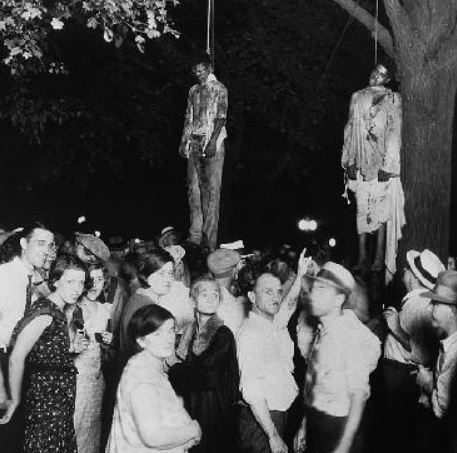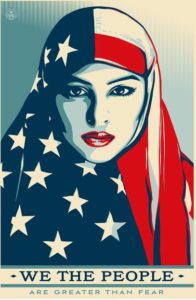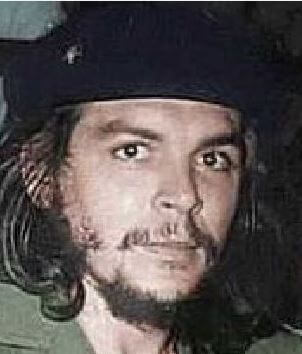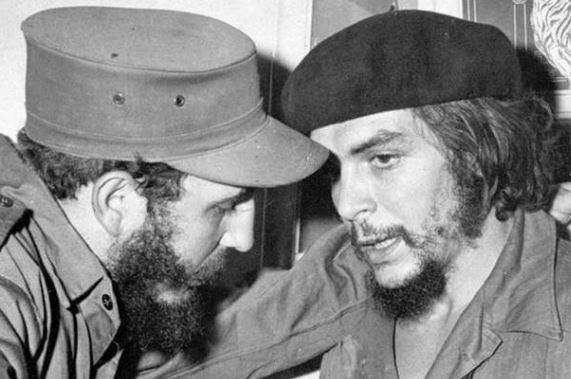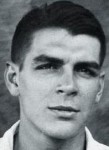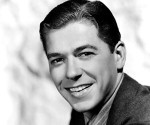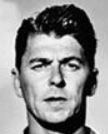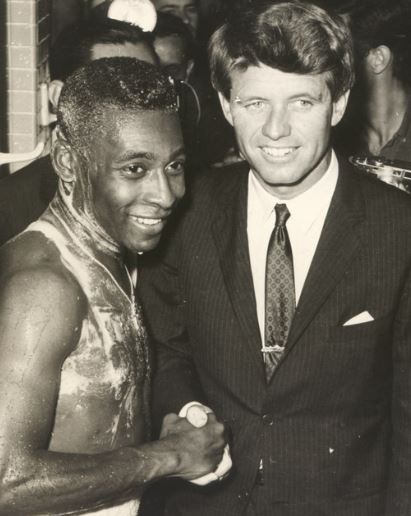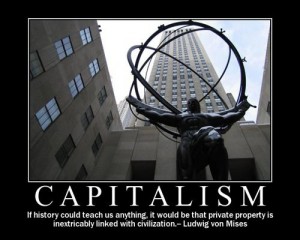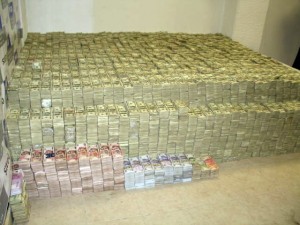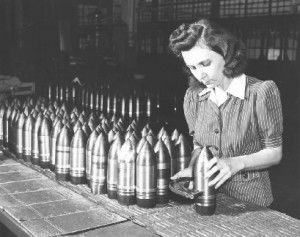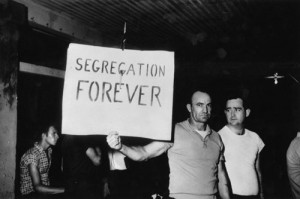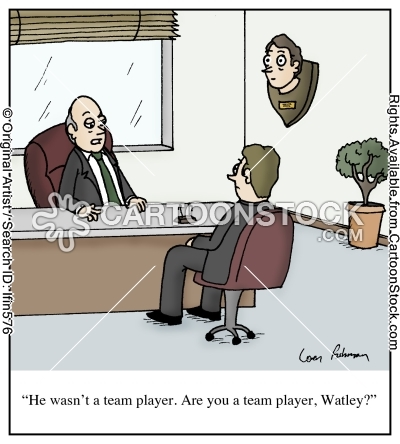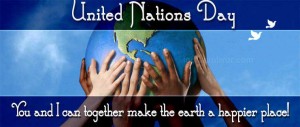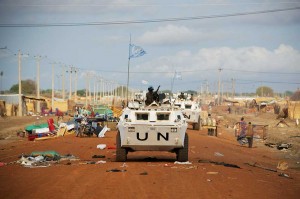A few months ago, I published 25 Answers to questions readers of Quora.com took time to ask me, because they trusted I knew what I was writing about. Yes, the world is easily fooled by pontificators posing as experts. I confess, I am one of them.
I am a bona-fide pontificator and intend to continue pontificating until I can no longer remember my name. For me, it’s art. My promise is truth, accuracy, and to fix screw-ups when someone points them out.
The response to my blog-bag of answers was underwhelming to the point where I wondered whether I should ever inflict another anthology of eclectic curiosities on any group of readers anywhere in the world.
Yes! I decided. Of course, I will. I love to read what I write!
When I forget what I once knew, I read the posts and remember how smart I was when I could remember stuff. It’s a good feeling. Someday I hope my grandchildren will understand why I don’t remember their names or how old they are. Someday I hope they will get what I’m talking about.
Brain-dead and happy is a wonderful combination, and I have it. Yes, I do. It is wonderful. I feel happy and content most of the time.
My mother had Alzheimer’s for years. It was a peculiar variation where she could remember twenty-five quips and jokes, which she repeated to anyone who would listen. Sometimes she wondered what was wrong with her. She asked about it, sometimes.
She always forgot the answer, but to the end she never forgot her repertoire of sure-fire laugh lines. Mom delighted us to the very end of her life, God bless her.
Anyway, I know stuff, and I’m no longer afraid to share. I would say I am becoming fearless.
This essay is a collection of 25 more questions that people from around the world have asked, and I have dared answer. My last Quora compilation was mostly math and physics. Not this time. Here answers focus more on politics, philosophy, religion, and other esotery.
Oh, I might slip a science or math question in here or there for nerds I know are out there who read my stuff and cling to every word.
Here goes.
1 – How is it “just” for jails to be privately owned in the U.S.?
Allowing private citizens to own the means-of-incarceration is as insane as it is unjust and undemocratic.
Since 1984, America has allowed people to sequester as much wealth as they can manage. The looting, cheating, and chicanery that followed has turned America into one of the most corrupt, cruel, and unfair countries the world has ever known.
The result is that now we have an associate of a powerful Russian cartel serving as our president. Are we really going to allow his friends to own our prisons?
Are we out of our minds?
The situation is far worse than you can imagine.
Billionaires run the media. You aren’t going to hear about ways of organizing our country that are in opposition to their consensus about how things should be done. What passes as “dissent” on shows like Rachel Maddow, for example, has the backing of some billionaire somewhere.
We don’t know the names of the people who run our country. They don’t run for office. They do buy the services of office holders on both sides of the aisle — GOP and Democrat. It’s disturbing, especially when people finally realize that they are at bottom mere slaves with no real power. If voting made a difference, would billionaires allow it? Would you, if you were rich? I don’t think so.

Even now, confidence in our electoral system is being undermined. Reality Winner, the NSA contractor who exposed Russian tampering with our election results, rots in jail; she can’t obtain bail. The media doesn’t cover her. They want us to forget all about her.
Keeping Reality incarcerated undermines confidence, because it makes it seem like the government has something to hide about our election process.
Is Something Wrong With America?
Capitalism and Income Inequality
2 – What does Elon Musk think about religion?
Elon believes (correctly) that the risk of a future human extinction event approaches certainty over a very short period of time that can be estimated to be in the hundreds of years or less.
Elon believes we are in a race against catastrophe; humans are special and must be protected; one way to reduce extinction probabilities for humans is to establish populations on other planets and moons.
There are 165 or so rocky (solid) bodies in the solar system with enough gravity that humans can walk on them. Places where large populations can survive are fewer than five and could be as few as absolute zero.
Mars has special problems for human survival which must be solved. It has no protection from high energy radiation and cosmic rays. It lacks a magnetosphere and the atmospheric gases like nitrogen and oxygen that are opaque to harmful rays and particles. Elon believes these problems will be solved and that risk of extinction can be reduced if we establish vigorous colonies there.
He has hope where most informed people do not. My hope is that we can avoid extinction on Earth, but volatile climate and frequent ice ages are difficult to overcome.
We also have new and unusual risks associated with our technologies —biological, nuclear, AI, totalitarianism, resource depletion, and runaway climate change.
Natural risks include asteroid strikes, super nova irradiation, and volcanism. These natural risks are likely to be the same (or larger) on other bodies in the solar system as they are on Earth.
Two human-like species are known to have gone extinct in the geological record. (Some anthropologists say it’s three.) Human populations experienced a near extinction event 70,000 years ago when the total population collapsed to less than 4,000.
I do not know what Elon Musk thinks about organized religion.
I see religion as a brake on the tendency of humans to kill each other, which history teaches has sometimes been effective and at other times not. Sometimes, strongly held religious beliefs lead to war.
On one thing humans agree: they love to fight.
3 – What is the greatest achievement in human history?
Blaise Pascal said that civilization advanced when people finally understood that being the son of a Queen did not qualify someone to be a King.
Nepotism kills civilizations and impedes human progress. An example is the president bringing in his family to manage the United States, presumably because loyalty trumps ability.
The cascading catastrophe that is enveloping us will soon teach anyone who is teachable that placing loyalty to a “king” above the ability to serve our country is one of the many roads that leads nations to ruin.
4 – Why is there a lot of woo-woo surrounding the double slit experiment?
If you shot a BB gun once every five minutes for two weeks at a steel plate that had cut into it two quarter-inch slits, you wouldn’t expect to find 25 or so tidy columns of holes in the wall behind when you were done. People who have done this experiment with atomic scale particles always say “woo” after, because the phenomenon makes no sense.

The mathematics to describe the phenomenon is the same as that used to explain wave-behavior. The problem is this: even if you shoot one wave packet at a time (using photons) instead of solid BB-like particles (like Buckyballs), no one expects that over a few weeks tidy columns will form on the back wall that look like wave interference. The reason for the pattern is a total mystery.
5 – What is the origin of geometric shapes (triangle, circle, cube, etc.)? If the universe was governed by different laws, would it be possible that these concepts would also be different?
People speculate about the origins of idealized shapes that don’t occur in nature (except approximately). People seem to crave symmetry. They don’t like cognitive dissonance, uncertainty, or ambiguity.
People who are dissonant-intolerant are easy to manipulate. Politicians prey on people’s discomfort by offering simple solutions in return for votes. The result is always disillusionment, because nothing involving people is simple.
Nothing in nature is simple, either.
Triangles, circles, and cubes seem simple because of their symmetries. They appeal to the simple-minded among us — which is 99% of the population, right? It might be 100% if mathematics and language are insufficient to understand ultimate reality.
Einstein had this theory that only mass and energy exist. They are equivalent; they are two sides of the same coin. Space and time are a consequence, not a cause.
Space-time was described by tensor-metrics, and the metrics show that space-time does not have to be flat.
Lines can be thought of as geodesics, which are “straight” only when the metrics of space-time are “flat”. When the metrics “curve” space-time (as they do near massive objects) parallel lines might be parallel in one place only, as lines of longitude on Earth are parallel in one place only — at the equator.
The laws of physics seem unlikely, because twenty or so constants in nature have been discovered that can’t be derived and seem to make no sense. All these constants have been revealed by experiments and seem to be irrational. One example is the constant “α” (alpha), which is discussed in the first link that follows this answer.
Stephen Hawking says that the odds of a universe configured like ours are 1E500 against, which is close to an infinity. But Stephen Wolfram says that at the heart of the universe is a simple algorithm. In his view the algorithm, should anyone ever discover it, will prove that our universe is the only configuration possible.
Who knows?
6 – What salary in the United States puts you in the top 10%, top 5%, top 2%, and top 1% in terms of salary?
All anyone needs to know about train-wreck America is that half of all black families live on less than $40K per year; half of all non-black families live on less than $75K per year. It’s hard to imagine that families can survive, let alone prevail, on so little income.
The USA is segregated by income and race. Poor people have no idea how easy life is for the wealthy; the wealthy don’t believe America has poverty.
I have five sons and one daughter. Only two of the six are in the top 1%. The most talented one, an assistant professor of kinetic art at a major university, is in the bottom half. His brothers give him money so he can get by.
Gross inequality isn’t right.
Capitalism and Income Inequality
7 – Modern humans appeared 200,000; civilization 10,000; and advanced technology 500 years ago. Why no advancement for something like 190,000 years?
Technology advances when survival demands it. Wars involving large populations did not become possible until about 3,000 years ago, because human populations were small.
Technology (to wage war) began to advance when population size increased; war technology percolated into the general population during peacetime.
70,000 years ago the human population collapsed to what some anthropologists believe was fewer than 4,000 individuals. The climb back took a long time because the world was in an ice age until 15,000 years ago or so. It has taken time to reach seven billion individuals.
The good news is that advances in technology and science are no longer driven by war, but by the preparation for war. Entertainment, comfort, convenience, and other factors drive inventors to bring clever technologies to peacetime populations.
Avoidance of war should become the highest priority of humankind from here on out, or we might suffer a catastrophic population collapse that would most certainly set back human development for hundreds of thousands of years.
Extinction is another possibility. At least two intelligent hominid species are known to have gone extinct during the past 200,000 years. There may be others.
Sorry for the short answer. The list of technologies and natural catastrophes that can annihilate homo sapiens is long. Click the following link to read about most of them.
8 – Should the USA build a competing Status-6 Oceanic Multipurpose System (Doomsday) Nuclear warhead?
Enough Pu239 has already been produced in weapons and processed from nuclear fuel rods to sterilize planet Earth of all life.
One country, Japan, has isolated 47 tons of Pu239 from fuel rods, is adding 8 tons per year, and has complained on NHK television that they don’t know what to do with it. Ten pounds is enough to make one atomic bomb.

The level of toxicity of Pu239 dust has recently become controversial. My understanding is the traditional one: the speck of brown dust that kills you, you will never see.
The half-life of Pu239 is 24,000 years. Risk studies (which include about a dozen hazards not related to plutonium) have shown that the chance that homo sapiens will survive a catastrophic population collapse during the next 24,000 years is less than one-in-a-million.
Humans cannot baby-sit all the plutonium that exists in facilities on every continent and keep life on earth safe from annihilation by contamination. The warheads and storage facilities are going to rot over time, and the earth will soak up the poisons left behind like vinegar in a sponge.
Doomsday is not a question of whether-or-not but of fast-or-slow. There is no upper limit to the size of a hydrogen bomb, so fast is doable. A rogue group with enough resources could construct a bomb powerful enough to obliterate Earth.
No one can undo the poisons that now exist, so slow is inevitable.
9 – What is the evolutionary reason that human beings are superficial and attracted to external appearances more than towards intrinsic qualities such as intelligence, character, integrity, honesty and virtuosity?
My reading and life experience tell me that humans are attracted to symmetry.
There could be any number of reasons, but it is easy to argue that symmetry seems to create less stress in those who encounter it, which may make them more receptive (and less reluctant) to mate with those who have it.
Reduction of cognitive dissonance is a major driver of conscious-life; symmetry seems to reduce dissonance in sentient beings like humans.
Interest by humans in mathematics and art seems to confirm, at least to my mind, that folks are driven to imbibe “harmonies” and “patterns” in nature; these symmetries provide them with reassurance that the world is not hostile and that happiness and reduction of stress is possible in the face of accidents, disease, and predators.
Intelligence, character, integrity, honesty and virtuosity are qualities that are not easily perceived and can even be illusory. People are good at feigning all these qualities to manipulate others to satisfy their needs — especially their sexual appetites and their desire for power over others.
Symmetry is not easily disguised (or the lack of it, even with good grooming) and can be an indicator of good mental and physical health, because symmetrical (attractive) people tend to have higher status and are in general less traumatized by mistreatment (on average) than people who do not have this physical quality.
People may mate with high symmetry individuals and later discover than the intangible moral qualities that they value in a life-partner are missing. Such a discovery can lead to separation, but meanwhile offspring have been spawned who have high levels of symmetry, and the process of selection for this quality continues unabated into future generations.
Yes, I have no evidence that this conjecture is correct; it’s not my field, but it seems to be a factor in the world I find myself.
10 – How does Russia stay on par with the USA in many high-tech military systems when their GDP and military budget is so small by comparison? Shouldn’t we be light-years ahead of them by now?
USA military spending is deceptive and classified.
The United States has 800 bases inside 70 countries. It is at war with every country that doesn’t do what it’s told.
Since the end of WW2, the USA has attacked one-fourth of the 195 countries on the earth. Depending on who counts, the USA has killed between 10 and 65 million people, most of them civilians. Injured people are uncountable.
The high casualty rates are due to the way it fights. The USA bombs the enemy to rubble, then moves in a few troops supported by large numbers of indigenous mercenaries to deny the rubble to the enemy.
Take two countries the size of the USA and put them side by side. The land area is less than Russia. Russia is huge. Its entire population is technically literate.
In the USA, only elites are educated. The vast majority of Americans are poorly trained, because public education is underfunded and neglected. Under the American system, education doesn’t generate profits for the wealthy, so they won’t support it.
Because America is segregated by race and income, it is difficult for visitors to get a sense of how poor the general population is. Wealthy Americans are in complete denial of the simple truth that their country is a train wreck for 75% of the people who live in it.
People with the money to travel don’t explore urban ghettos or rural wastelands. They don’t know things, nor do they want to know.
The USA has the world’s biggest and cruelest prison system for a reason.
Think about it.
Every country in the world, including Russia, is trying to avoid the wrath of the United States. They say nice things to us, so we won’t hurt them. They build as much deterrence as they can to avoid being attacked or embargoed.
It’s simple, really.
11 – Has anyone considered leaving the USA because of the gun laws?
Anyone who has to carry a gun to feel safe is living in the wrong place. My recommendation is to move to safety ASAP.
The guns that many civilians own today inflict shattering injuries that no one who is shot can recover from. The slugs are high velocity and tumble. They are designed in non-conformance with the Geneva accords and are diabolical workarounds.
I would rather die myself than fire one of these weapons at another human being, no matter what they’ve done.
We have police and soldiers who are trained to inflict mayhem when necessary to protect civilians from human predation. Why not let them do their jobs while we civilians throw our war guns away?
Carrying a high-powered weapon into a wild area that is rife with people-eating predators might be a good idea under some circumstances. I don’t have a problem with defense-by-gun against wild animals who might be trying to kill for food or fun.
My recommendation is to travel in wild areas in a way that doesn’t unnecessarily encourage attack by dumb and innocent animals — because, can we face facts? — they don’t know any better.
Animals have a right to live in a natural way and not be provoked. People are smart enough to travel in the wild and avoid unnecessary contacts with carnivores.
12- What would happen to Hitler if he was captured today?
Well, I believe he would be released and featured in the next GOP presidential debates, win the Republican nomination, lose the popular vote by millions in the general election but win the electoral college, and become president.
As a lunatic with delusions of grandeur, he might do very well indeed.
I don’t think he would kill nearly a hundred million people like he did the last time around. It is more likely closer to two billion. But hey, that leaves five billion humans to abase themselves before him, so it would be worth it, right?
Republicans, can I hear an Amen?
13 – Would you consider the USA a noble superpower when compared to other superpowers like Russia and China?
The billionaires who run the USA believe that private ownership is noble and that public ownership is ignoble. They are in a war against any form of socialism or collectivism.
Since the end of WW2, the wealthy have used the military power of the United States to attack one-fourth of the 195 countries on the earth to prevent a cascade of civilizations into communism. This war has, with a few exceptions, been enormously successful.
Today, they are fighting to consolidate their power. The billionaires of Russia, China, Israel, and the USA are dividing up the world like the New York City crime families of a few generations ago (watch the Godfather Trilogy or read the book by Mario Puzo).
Private ownership (called Capitalism) is a permutation of slavery that can be corrupting to democratic governance — as is obvious to any observer of U.S. history.
CAPITALISM AND INCOME INEQUALITY
14 – How do you interpret human consciousness? Are you the center of the universe?
Consciousness is the fundamental and foundational principle of the universe. Conscious life plugs into this foundational consciousness in a way analogous to televisions plugging into a cable outlet. A television can be unplugged and replaced. But the cable programming continues. It is eternal. Consciousness is at the center of the universe. Conscious life is at the periphery.
15 – How would slavery have evolved in society if it was not seen as morally wrong?
“Capitalism” is the modern term for slavery. Owners of plantations, factories, and other businesses accrue the benefits of the plantation owners of former times.
Instead of providing slave quarters and food to their slaves, they pay a tiny stipend (called a minimum wage) to their laborers, which frees owners from the additional responsibility of caring for and protecting workers.
Putting the burden of housing, food, health care, and transportation on the backs of low-paid workers is called “freedom.”
The legal system disciplines unruly workers, while the state unemployment system helps dissatisfied owners replace those workers they believe are unfit.
For a small percentage of Americans, it’s a beautiful system.
Because the USA segregates workers both by race and income, most poor people don’t interact with the wealthy. This lack of contact between rich and poor reduces conflict and promotes peaceful living.
SEGREGATION AND THE GATED COMMUNITY
16 – Who was the most powerful human being that ever lived?
The most powerful person in human history was Jesus of Nazareth.
Modern calendars are organized based on the date of his birth. No one else holds that honor.
He taught the world that love — and suffering to love and save others — is what makes life worth living.
Billions have submitted their lives to the cause of Jesus, the Christ. No other human comes close.
17 – Which among these countries is the best to live? Canada, USA or Australia? Why?
My question is, which country is the best place to live if you are poor? Most people are born poor.
If people go on living by being born again after they die, the odds that they will be born impoverished is high regardless of how well they lived in their prior life. That’s why its important to make the world a good place to live for impoverished people.
Does anyone seriously believe that they only live once? Consciousness continues somewhere, and it’s all there is, right? Absent conscious-life the universe can have no meaning.
I believe Cuba is the best place to live if you are poor, because it has a good climate and the government tries to provide services to ordinary people that are available only to the well-to-do in places like Canada, Australia, and the USA.
People might want to go to Cuba to find out how the poor live on that island. Then come back and observe how the poor live in their own countries.
The United States is segregated by income and wealth, so it’s hard to find poor people if you are rich, and if you are poor it is impossible to meet rich people.
18 – Trump wants to develop a lot of smaller, “tactical” nukes. Should the US use these against North Korea?

The USA bombed North Korea back to the Stone Age during the Korean War.
It killed an estimated two million civilians. The bombing was led by General Curtis LeMay of the Strategic Air Command who later partnered with George Wallace when he ran for president back in the 1960s and carried several states including Michigan (if I remember it right).
Wallace was a white supremacist. The Air Force’s own official historians have called LeMay’s bombing of North Korea the cruelest use of military power in world history.
This is the same General who destroyed 67 Japanese cities and burned their populations alive with napalm (fire-jelly) during WW2.
North Korea has done nothing to justify a military strike against its territory.
Nuclear weapons of any size or type should never be used in war, especially when there is nothing to be gained but the reputation for being a monster.
What does Korea have that we could possibly want? The answer is, nothing.
We have a choice to make: are we good or evil? Our destiny depends on how we answer that question.
19 – I am terrified of single-payer systems as implemented in socialist countries. Can this happen in the US? Was Obama trying to give everyone healthcare all along?
The USA is based on a slave system (now referred to as capitalism or free-market) where the owners of the plantations have doctors, which they share with their favorite house slaves. The field hands get nothing. The plantation owners are terrified that they might have to share their doctors with “unworthy” people should a slave revolt occur, so they have built the world’s most massive prison system to isolate slaves who might dare challenge the status quo.
In other words, people have to work for the right company and have the right job to get access to free health care. Very few do.
The system is so simple, a child can understand it.
Obama threw a wrench into the system by making it possible for people who work for the wrong companies (or who don’t work at all, for whatever reason) to buy access to health care for a reduced fee. Care is still expensive, but it’s not totally out of reach anymore for about three-quarters of the population.
In Cuba (for example) every neighborhood and apartment complex has a doctor assigned to it. What could be more effective than walking down the hall or across the street to be evaluated? If necessary folks are referred for further treatment to a hospital. Otherwise they get the meds they need, and that’s as complicated and inconvenient as it gets.
I grew up in a Navy family. We had free health care. If you got sick, you just drove to the base hospital and the doctors evaluated you. No paper work, no fees. It was a “single-payer” socialized system of medicine. It was better than what we have today as civilians except that protocols, equipment, and medicines are more effective today than they were sixty years ago when I was in that Navy system.
It’s hard for me to believe that this is a serious question by a serious person, but clueless people in the USA are subject to sophisticated behavioral modification protocols due to the immense amount of money that is involved in medicine and drugs, as well as guns, entertainment, food, and transportation.
So it isn’t surprising that people fear a lot of things that aren’t dangerous and are oblivious to dangers that are serious. It’s all about helping a relatively few families and cartels sequester the lion’s share of our nation’s resources.
Someday, maybe things will become more fair than they are now. I hope so.
OBAMA CARE AND THE LAW OF UNINTENDED CONSEQUENCES
CAPITALISM AND INCOME INEQUALITY
20 – Why is it assumed that America invented slavery when slavery has been around for much of human history?
America practiced one of the cruelest forms of slavery. It is the only country in the western hemisphere where slave revolts were successfully suppressed.
Today, slavery has been renamed; it is called capitalism. In the USA, slaves are called workers and are free to live outside the gated communities of the wealthy. Workers are segregated by income to minimize the possibility of unrest.
The USA continues to prevent a successful slave revolt by maintaining the largest prison system by far that the world has ever known.
SEGREGATION AND THE GATED COMMUNITY
21 – What was the worst year of slavery?
Two-thirds of white people came to America as slaves, called indentured servants. This practice started 150 years before the country became a constitutional republic and continued for many decades after. Indentured servitude was a seven year term of slavery that ended in freedom.
For Africans slavery was permanent. 100% of Africans came to America as slaves for life. There were notable exceptions. Billy Lee, George Washington’s slave and best friend, was set free when George Washington died; Billy Lee continued to live on GW’s Mount Vernon estate as a free man until his death.
22 – Is it true that until humans become one nation, we will never go further than Mars?

Organizing a human mission to Mars is expensive and dangerous. A coalition of nations might be able to manage the expense and risk.
Elon Musk’s company, SpaceX, is planning a Mars mission. I haven’t heard how the company plans to finance it.
Mars has an iron-nickel core like the earth, but it froze solid many millions of years ago. The magnetic field collapsed, which permitted the solar wind to blow away most of the planet’s atmosphere.
Any biological life forms on or near its surface will have to withstand the stress of continuous, high-energy radiation and the bombardment by cosmic particles with the energy of baseballs.
Travel to planets or moons as far as Jupiter and beyond will take many years.
Unless humans are heavily sedated, it is doubtful that they will be able to endure a journey of several years in a cramped space vehicle. They will lose muscle mass and possibly their sanity — certainly their perspectives that help them maintain a sense of normalcy.
Successful functioning by humans on an alien moon or planet after a journey of several years might not be possible no matter who organizes the trip or what precautions are taken.
23 – To Christians: Which scientific claims are incompatible with your faith, and why?
Science confirms my faith, because it seems to be saying that reality is mind-boggling; the odds against a universe constructed like ours with its unusual forces and constants seems to be infinite.
Jesus came to save the ignorant and the despised of the world, which is pretty much everyone. He avoided the subject of science altogether, for good reason.
No reasonable person can believe that the universe started with the big bang of a singularity that then inflated rapidly to create the conditions for conscious life with enough intelligence to understand its origins. That’s cray-cray, but it’s how some astronomers explain the universe.
Even with all we know, the underlying reality of existence remains a complete mystery. If Jesus came to Earth today, would he talk science to humanity?
I seriously doubt it. I don’t believe humans are hard-wired to understand how the universe works or what reality is. We evolved in an unusually safe place and time in the universe and carry with us all the peculiarities and idiosyncrasies that accompany our unlikely presence.
The Bible says plainly that one day people who have ridiculed God will be asked why they didn’t look up at the night sky and wonder why it is that they are so small and dark while the night sky is so large and bright.
How could serious people have missed such an important clue? How could anyone misunderstand their predicament and not concede the possibility that one day they might realize their hopes and dreams through the love of God who created, cares for, and protects them?
24 – Keeping the knowledge you have today, would you rather travel a thousand years into the future, or a thousand years into the past?
The risks to survival that faced individuals a thousand years ago far exceed the risks that people will face a thousand years from now—if humans survive another thousand years.
The counter-intuitive statistical reality is that the odds against species survival are actually higher than odds against survival of any individual human, should individual humans achieve viability during the next thousand years.
Most analysts of risk are suggesting that homo sapiens do not have much time left before extinction overwhelms them.
The geological record shows that at least two human-like species have already gone extinct. The particular species that thrives today (us) faces risks brought on by its technological expertise, which is certain to destroy it eventually.
I would choose to go forward in time, but I would do so with a great deal of fear knowing the old adage that curiosity kills the cat.
If everything turns out all right, the big question would be, how do uneducated, stupid people do in this new world?
Because uneducated and stupid is exactly what anyone will become who dares travel into a future one-thousand years more advanced than today.
25 – What are ways one can approach a complex idea that we don’t understand?
Complex ideas are of two kinds: ideas that one or more people understand but others don’t; and ideas which no one understands.
In the case where certain humans exist who understand a complex idea, the objective should be to learn what they know either by talking to them or reading what they have published. By this process, maybe folks can gather enough clues to guide them to further inquiries, which will lead eventually to understanding.
Many complex ideas require skills in certain subsets of knowledge like mathematics, languages, logic, philosophy, and the technical arts (such as metallurgy or whatnot) to make progress.
In the case where a complex idea can be demonstrated and stated but no one understands it (an example is “entanglement” in quantum physics), the approach is different. In these cases, it may not be possible to create a model of any kind in anyone’s mind to reduce the annoying dissonance that comes from not understanding.
People waste a lot of time — some go mad — trying to understand ideas no one understands or will ever understand. Most people seem to believe (in error, it seems to me) that everything can be understood if smart people work hard and are clever.
The idea, which I believe, is that complete understanding is not possible; it is a complex idea that no one understands, including me.
BONUS QUESTION 1 – In history, humans have fought and killed each other for every piece of land on the Earth. Why has the massive continent of Antarctica always been out of that conflict?
This absence of conflict may be coming to an end. A National Geographic reporter has been reporting on alarming developments in Antarctica over the past several years that the fake news has all but ignored.
BONUS QUESTION 2 – Why did mankind invent religion?
As far as I can tell, no records of an ancient civilization without religion have been discovered. I think that it is very scary to be suddenly aware that you exist and not know why — especially at night when wild animals roam freely, and the sky is full of lights that should not be there.
Billy Lee
Editorial Board Recommendation: We are encouraging readers to visit Quora.com to read responses by Billy Lee (and others) to hundreds of questions asked by curious people from around the globe.





